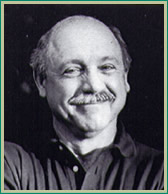
I and Thou: Mission Possible
|
 |
|
| Domenico Piazza Senior Associate |
At one time or another, all of us in the serving professions have had a sense of mission. I certainly get hooked into the notion now and again that something big needs accomplishing and I’m the one to do it.
Gregory Boyle and Dr. Gabor Mate are two men with a mission. Boyle, a Jesuit priest, works with gang members in Los Angeles and is the founder of Homeboy Industries. His observation about the boys who are seeking a way out of gang life defines the parameters of his mission:
"I remain always curious about the presence (or lack thereof) of fathers in the lives of the homies. In the soul of nearly every homie I know there’s a hole in the shape of his dad. Homeboy Industries is always trying to create the moment of what psychologists call the “sustenance of that first attachment.” It is an offering (better late than never) of that parent-child bond that tells the fatherless that they are lovable."
Gabor is a physician in the Downtown Eastside Vancouver clinic, where he treats and counsels addicts. He locates the source of addictions in the trauma of an emotionally empty childhood, making it a relational rather than a medical problem. In the introduction to his powerful book, In the Realm of Hungry Ghosts, he captures the essence of his mission:
"My medical work with drug addicts has given me a unique opportunity to know human beings who spend almost all their time as hungry ghosts. It’s their attempt, I believe, to escape the hell realm of overwhelming fear, rage, and despair. The painful longing in their hearts reflects something of the emptiness that may also be experienced by people with apparently happier lives. Those whom we dismiss as “junkies” are not creatures from a different world, only men and women mired at the extreme end of a continuum which, here or there, all of us might locate ourselves."
In a story from In the Realm of Hungry Ghosts, Gabor is working with Celia—a crack addict in for her methadone prescription. She has a six-month-old daughter who lives in a foster home. Celia still dreams of regaining custody and building a family life, but she’s incapable of giving up cocaine. Gabor says to her, “As much as you love your baby and as much as you want to love her, on crack you’re not fit to be a mother. You yourself once said that you don’t get the best of a person when there’s an addiction. The child needs the best of you, needs you to be emotionally stable and present. Her sense of security depends on it. Her brain development thrives on it. You are no parent when you’re controlled by your addiction. Don’t you understand that?” His voice is strained and cold. There is tension in his throat. He’s angry with this woman. He continues, “I’m trying to force on her a truth that, as a workaholic doctor and in other ways, too, I tend to ignore in my own life.” And then he adds: “Yet in the larger scheme, I choose [my emphasis] to see a triumph in it: a demonstration of how life seeks life, and how the divine spark that burns within us all continues to glow, even if it is unable to blaze into full open flame.”
This pattern—the shift from judgment to compassion—is characteristic of Gabor’s approach to his clients. There is a lesson in it for all who are granted the honor of someone’s trust.
From Boyle’s book, Tattoos on the Heart, comes the story of a time he was praising a homie for one thing or another on the phone, and “he just wouldn’t have it”:
"“You know,” the homie insists, “I still have my blemishes.” We still have to put our Western minds in a headlock and wrestle them to the ground. We think “blemishes” are shortcomings. We think our continually gnarly hardwired responses are not just proof of our humanity but (somehow) of our unworthiness. Homies are particularly culpable here. In an acute version of the Stockholm syndrome, homies identify with, and grow attached to, their weaknesses and difficulties and burdens. You hope, in light of this, to shift their attention and allegiances to their own basic goodness."
We have much to learn from Gabor and Boyle. Though they serve the most desperate individuals, their approach carries deep truths for the work we all do. We find in both men compassion and humility. The hard truths they live with each day apply to them as well as to their clients. The quickest paradigm shift comes when we recognize ourselves in those we serve, especially those who are despised by society. I like the way Boyle describes Fabian, a young man from a disastrously dysfunctional family. He says of him, “But somehow, by a mysterious and gracious turn of some steering wheel, Fabian found other coordinates and navigated his way out of the treacherous waters where others perished…. With more mystery than I can explain away, Fabian locked on to the singularity of that love that melts you. It doesn’t melt who you are, but who you are not. Turns out he wasn’t all the abuse he endured. He was something else, astonishing and glorious.” Notice that it is Fabian who’s in charge here.
In the world of schools, teachers and others play roles similar to those of Gabor and Boyle. We stand, in a sense, on the perimeter of students’ lives. In myriad ways, we attempt to build bridges to the worlds they inhabit. We create lessons with the hope of altering perspectives and adding knowledge. Our intersections with them occur primarily in the limited space of classrooms, which are at best only an approximation of their reality. For many children, the lives they experience outside the school bear little resemblance to the world we present to them. We unwittingly filter our lessons through our adult, middle-class value systems. We champion learning for its own sake, rather than as a means to self-knowledge. We honor order and obedience because these values make running schools more manageable. By implication, we are in the business of fixing or improving the young people we meet. We believe that recognition and rewards need to be earned by students’ adherence to our formulas for success. In short, a lot of external energy is aimed at students in order to bring about desired changes. We do this sincerely and with the best of intentions. But our results leave a lot to be desired.
The lessons from Boyle and Mate suggest that it is the acceptance of the children we work with, as they are, that energizes the emergence of self-love and the desire to live more fully. They remind us that acknowledging and honoring the students we meet, despite their struggles and their failures, provide the stimulus for growth. We need to think of all the time we spend pointing out what’s wrong with our kids and refocus on what’s working for them already. Mate and Boyle spend their days with those who have been expelled from the “normal” world. And yet the approach they have intuitively followed strongly suggests that our prime responsibility is to love and honor others as we wish to be loved and honored ourselves. This perspective is no less vital for those of us working in less obviously dire circumstances. There are no class distinctions in the need to be loved.
This is not a Pollyanna notion. Brain plasticity, the ability of the brain to change itself, helps us understand how lives change. We know that attachment with a loving caretaker is foundational for healthy growth. The key ingredient of attachment is a secure sense that one is valued and loved unconditionally. Many have missed this experience, but it is never too late to provide it later in life. While it is a greater challenge in older individuals, the work of these two men demonstrates that it is still the key ingredient in changing and expanding life’s potential. When one of Boyle’s homies had a toothache, he was told to call for an appointment and Homie Industries would pay the dentist. After several calls, the boy continued to complain about the pain but would not call for an appointment. Boyle became angry and was about to chastise him for not taking the initiative. Boyle caught himself in the middle of his own annoyance and said, “You know, you are my hero. You have to put up with so much, but you keep on showing up. You never stay away for long. You ask for help. I admire this. I’ll make the appointment and drive you.” The boy was silent for a few seconds. Then, with a sob in his voice, he said, “I’m gonna tattoo that on my heart.” It is where Boyle got the title for his book.
For me, the passion to create environments conducive to learning grew in direct proportion with my exposure to real students and the ever-present memory of my own life in schools. My attention as a student was focused outwardly on the expectations of those with power. I found little support for self-reflection and for those aspects of life that resonated for me. It took decades for me to begin formulating what awakened my true self and my authentic voice. My mission is a continuum of my own search for meaning. Teaching came closest to providing me with a daily opportunity to observe the process of my own growth and the growth of those I taught.![]()
Center for Empowered Leadership ®
Email: info@cfel.org
Phone: 1.609.259.7911
